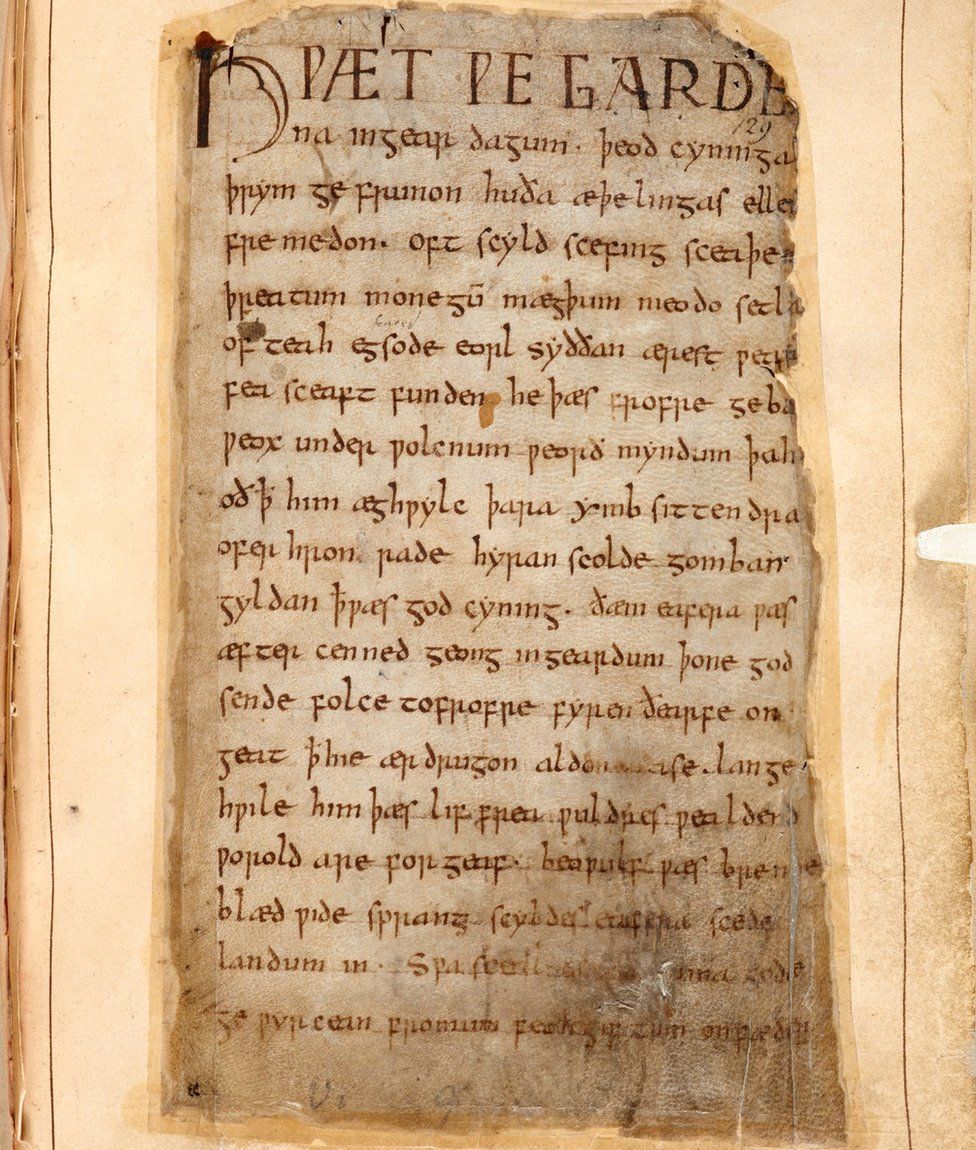
Both pagan and folkloric aspects as well as indisputable Christian tones are found in Beowulf. The style of handwriting is consistent from the start of the manuscript until line 1939, after which the handwriting changes to another for the rest of the poem. The heroic Anglo-Saxon story survives to the world in one eleventh-century manuscript that was badly burned in 1731, and in two eighteenth-century transcriptions of the manuscripts. Shipping may be from multiple locations in the US or from the UK, depending on stock availability. Two scribes transcribed the Beowulf manuscript that exists today from an original. The story of Beowulf and his hard-fought victory over the monster Grendel has captured the imagination of readers and listeners for a millennium. For the first time in the history of Beowulf scholarship, the poem appears alongside the other four texts from its sole surviving manuscript: the prose Passion of Saint Christopher, The Wonders of the East, The Letter of Alexander the Great to Aristotle, and the poem Judith. Fulk, based on the most recent editorial understanding, allows readers to rediscover Beowulf' s brilliant mastery along with otherworldly delights in the four companion texts in The 'Beowulf' Manuscript. Could a fascination with the monstrous have motivated the compiler of this manuscript, working over a thousand years ago, to pull together this diverse grouping into a single volume? The prose translation by R. First-time readers as well as established scholars can now gain new insights into 'Beowulf'-and the four other texts-by approaching each in its original context. For the first time in the history of Beowulf scholarship, the poem appears alongside the other four texts from its sole surviving manuscript: the prose Passion of Saint Christopher, The Wonders of the East, The Letter of Alexander the Great to Aristotle, and (following 'Beowulf') the poem Judith.

Christopher, The Wonders of the East, and The. 'Beowulf' is one of the finest works of vernacular literature from the European Middle Ages and as such is a fitting title to head the Old English family of texts published in the Dumbarton Oaks Medieval Library. Understandably, interest in the manuscript has centered on Beowulf, and it is still called the Beowulf manuscript here, thoughunprecedentedlythis new book contains both text and translations of all the Nowell manuscript’s items: the three prose works that precede BeowulfThe Passion of St. Fulk, based on the most recent editorial understanding, allows readers to rediscover Beowulf's brilliant mastery along with otherworldly delights in the four companion texts in The Beowulf Manuscript. First-time readers as well as established scholars can now gain new insights into Beowulf-and the four other texts-by approaching each in its original context.Could a fascination with the monstrous have motivated the compiler of this manuscript, working over a thousand years ago, to pull together this diverse grouping into a single volume? The prose translation by R. For the first time in the history of Beowulf scholarship, the poem appears alongside the other four texts from its sole surviving manuscript: the prose Passion of Saint Christopher, The Wonders of the East, The Letter of Alexander the Great to Aristotle, and (following Beowulf) the poem Judith. Beowulf is one of the finest works of vernacular literature from the European Middle Ages and as such is a fitting title to head the Old English family of texts published in the Dumbarton Oaks Medieval Library.But this volume offers something unique.

Fulk, based on the most recent editorial understanding, allows readers to rediscover Beowulf’s brilliant mastery along with otherworldly delights in the four companion texts in The Beowulf Manuscript.Hardback. First-time readers as well as established scholars can now gain new insights into Beowulf-and the four other texts-by approaching each in its original context.Ĭould a fascination with the monstrous have motivated the compiler of this manuscript, working over a thousand years ago, to pull together this diverse grouping into a single volume? The prose translation by R. Beowulf is one of the finest works of vernacular literature from the European Middle Ages and as such is a fitting title to head the Old English family of texts published in the Dumbarton Oaks Medieval Library.īut this volume offers something unique. The Beowulf manuscript (British Library) contains Beowulf, Judith, and three prose tracts the Exeter Book (Exeter Cathedral) is a miscellaneous gathering of lyrics, riddles, didactic poems, and religious narratives the Junius Manuscript (Bodleian Library, Oxford)also called the Caedmon Manuscript, even though its.


 0 kommentar(er)
0 kommentar(er)
